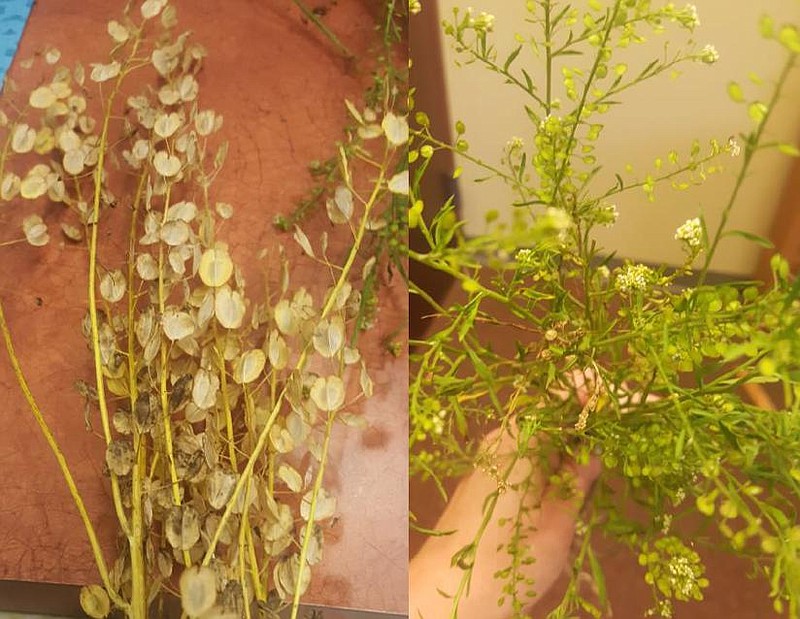Q. What is this weed, and how do I control it? (see photo)
A. The weed is commonly known as Virginia pepperweed. Most herbicides that kill broadleaf weeds will also kill it (for instance 2, 4-D). If it is in a lawn situation, then I would suggest you try for control in areas where it has troubled you in the fall and again in the early spring. If it is in flowerbeds and other areas of the yard where you are growing other broadleaf plants that you desire, then careful spot-spraying with glyphosate (the active ingredient of Round Up) could be used.
Once it is in flower and setting seeds, then chemical control is less effective. Hand cutting or pulling it and destroying the residue would be best.
Q. I just moved to a house with a very small yard, and there seem to be ticks. Any suggestions? My dog has picked up two - even in this tiny yard - although the neighbors behind have quite a jungle going.
A. We advise you to focus on both host and habitat management. For host, this would be to use flea and tick treatment products as best suits your needs. There are quite a number of products available, with many pet owners liking the convenience of topical treatments (where you apply to one spot), though there is a newer product given orally. These generally control ticks for one month. One can also focus on shampoos and treating the pet's sleeping area. It is worth noting ticks seem to be at their worst during June and early July. Their season runs from April through October.
For the habitat, short vegetation discourages ticks, a reason lawns are good for Fido's recreation. Of course, we'll have bushes and other vegetation, so if ticks are occurring there, one can treat with an insecticide; since the yard is small, you might treat the whole area. There are a number of insecticides labeled. Permethrin is an active ingredient labeled for outdoor use such as this and in a formulation as a topical product for pets. Be sure to read any pesticide label carefully and follow the instructions.
Q. I have half of a burning bush in which the foliage is all twisted, and the other half is just fine. A second bush is all OK. We haven't used any herbicides in this area. What might be the problem, and can it be fixed?
A. To be certain on confirming the problem, a sample would have to be submitted to our diagnostic clinic. The symptoms are typical of a virus. There is a good chance that when you prune out all the infected parts, you'll find a common branch or branches. Viruses are internal and may infect just one part of a plant. So, total removal of those branches is the first course of action; remove as low to the ground as possible. Watch for the same symptoms on the rest of the plant. If you get through a year or two without any, your bush is likely OK.
Q. I am getting lots of wild violets in my yard. How might I kill or control them?
A. Violets favor shady locations and where a lawn doesn't grow thick enough. For the latter, if there is enough sun, you may need to fertilize better and/or seed additional grass. If the area is too shady to grow grass effectively, then one might need to either thin out some tree branches to improve light or establish a shade-tolerant ground cover for those areas. Another option is to tolerate violets, as they fix nitrogen, have pretty flowers and are filling a habitat niche. If you decide you want to apply a herbicide to control them and haven't been satisfied with typical lawn herbicides, then look for a product with the active ingredient triclopyr. An example of a product available is Ortho Weed B Gon Chickweed, Clover & Oxalis Killer For Lawns (concentrate).
The Central Missouri Master Gardeners are a volunteer group of 191 members, 122 of whom are Cole County residents, who maintain 11 beautification sites in Cole County, which are nonprofits or public entities. Master Gardeners must complete a basic training program of at least 30 hours of horticultural training, as well as 30 hours of volunteer service. The Missouri Master Gardener program is supported by the University of Missouri Extension.
Have a gardening question of your own? Call 573-634-2824 or stop by the Cole County Extension Center in Jefferson City at 2436 Tanner Bridge Road.

